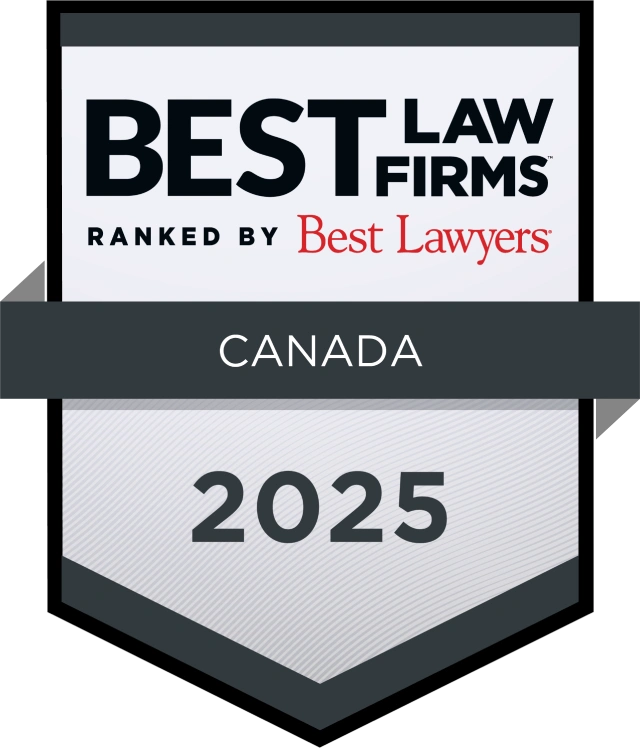Personal Injury Lawyers Medicine Hat
Get legal answers now. Speak to our lawyers.
Speak with our Medicine Hat personal injury lawyers and get legal answers to your personal injury questions.
Table of Contents
Without even necessarily knowing it, various members of our society have legal obligations to protect the safety and physical well-being of others. When these individuals or organizations fail to live up to their legal responsibilities and, instead, engage in wrongful conduct, they could put the very lives of other community members at risk.
Take the operators of motor vehicles, for example. In accordance with the province’s Traffic Safety Act, all drivers owe a duty of care to other road-users, including:
- Other drivers
- Their passengers
- Motorcycle riders
- Cyclists
- Pedestrians
- And possibly more
Unfortunately, motorists do not always take the safety of others into account while operating their vehicles. If a driver violates the rules of the road – even for the briefest of moments – their negligence can have far-reaching consequences for unsuspecting car accident victims. Glancing away from the windshield for a second to check a cell phone notification, speeding through an intersection to make a red light, changing lanes without signalling, and other illegal actions on the road could severely injure or kill another road user to whom a duty of care was legally owed.
In a similar vein, property “occupiers” are required to comply with the legal requirements mandated by the Occupiers’ Liability Act. In the context of premises liability claims, the term “occupier” could refer to an individual or organization that:
- Owns the property in question
- Is responsible for the condition of the premises (e.g., property manager, superintendent, etc.)
- Controls access to the property
- Oversees the activities conducted on the premises
The occupiers of commercial and residential properties must take certain precautions on their premises to reduce the risks of injuries on-site. If they fail to conduct routine maintenance, repair potential hazards on the property, or sufficiently warn guests about unsafe features on the property, they could be considered negligent.
When the wrongful actions of negligent parties cause accidents resulting in personal injuries, they might be liable for damages incurred by the injured accident victim. By working with our Medicine Hat personal injury lawyers, injured survivors of accidents in the region may be able to recover compensation for damages they have incurred as a result of another party’s negligence. These damages might include:
- Lost wages
- Reduced future earning capability
- Pain and suffering
- Physiotherapy
- Psychological treatment
- Mobility aids, assistive medical equipment
- Prescriptions
- Necessary home and vehicle modifications
- Ambulance services
- Mileage expenses to and from medical appointments
- Housekeeping services
- And other medical expenses
To learn more about how our personal injury lawyers serving Medicine Hat may be able to help you recover the compensation you deserve, contact us today.
Do Not Pay Unless We Win
Our Medicine Hat personal injury lawyers are committed to providing crucial legal assistance to members of the local community who have suffered physically, emotionally, and financially because of someone else’s negligence. Additionally, our personal injury lawyers serving Medicine Hat are also committed to reducing financial barriers to accessing our legal services.
That is why, in addition to offering all prospective clients a free initial consultation, our Medicine Hat personal injury lawyers work on a contingency-fee basis. That means you do not pay unless we win! To schedule your cost-free, no-obligation consultation, contact our personal injury lawyers serving Medicine Hat today.
Do you live in Medicine Hat? Here’s how we can help:
Notable Achievements
Awards and Recognitions
Proud to be one of Canada’s oldest personal injury law firms. The firm was founded in 1959 and has now grown to numerous offices across Canada. We have cumulatively secured over $1 billion for thousands of Canadians and are proud to maintain a high standard for our professional services without compromising on care or compassion.
Read More On personal injury Claims
Here are some blogs on personal injury claims.

personal injury
|
September 3, 2025
Understanding Spinal Cord Injuries
Spinal cord injuries can be life-altering. Because the spinal cord carries signals between the brain and the rest of the body, damage to it often…

personal injury
|
September 3, 2025
What Is Post-Concussion Syndrome?
Most people think of a concussion as a temporary injury. With rest and proper care, symptoms often improve within a few weeks. But for some,…

personal injury
|
June 5, 2025
Catastrophic Injuries in Alberta
Catastrophic injuries are very serious injuries that impose lasting consequences. For legal purposes, catastrophic injuries are defined in Alberta as permanently damaging to the victim’s…
Watch Our personal injury Videos
Check out our video series where we break down many interesting topics about personal injury claims in Alberta.
Commonly Asked personal injury Questions
Here are our most asked questions on personal injury claims.
What if I do not win the case? Do I owe any money?
We only charge fees if we are successful in your case, and we will never charge you back for expenses incurred in an unsuccessful case.
When should I contact a lawyer?
If you are asking this question, you should contact a personal injury lawyer. We provide free consultations with no obligation. If you think you have a situation where a personal injury lawyer might help, call us and ask!
Does your firm also represent insurance companies?
No. Our lawyers only represent accident victims and never insurance companies.
How do I pay for a personal injury lawyer?
Our personal injury lawyers do not require payment until after settlement. Then, the fees are payable out of the proceeds of the settlement. If there is no settlement, we do not charge a fee.
How can I help my lawyer with my case?
Our personal injury lawyers know the law and what evidence is important in your case and will fight for you. Insurance companies also know the law and what evidence is important, but they are fighting against you. Our personal injury lawyers will deal with the law and the insurance companies and let you focus on your health and treatment.
How long does it take to settle a case?
A case can take months to years to settle, depending on the severity of your injuries and the complexity of the case.
What are the different types of compensation I can get in a claim?
In personal injury claims, you can claim damages for the following:
- Pain and suffering;
- Loss of earning capacity, both past and future;
- Out-of-pocket expenses;
- Future cost-of-care; and
- Loss of housekeeping capacity.
What is a statute of limitations?
If you want to sue somebody, in most cases, you have a time limit. If you do not file your lawsuit in time, your legal claim is extinguished. These time limits are set out in various statutes (laws). A law that sets down a time limit to start a claim is known as a statute of limitations. It is very important to know the time limit to start your claim. If you miss that deadline, your claim can no longer be pursued.
When will I be compensated after I settle a claim?
After a settlement, it typically takes between 4 – 6 weeks before you receive your funds.
How will the strength of my case be determined?
Each lawsuit has a number of legal elements that must be assessed to determine the strength of the whole lawsuit. Our lawyers assess these elements and use the proper evidence to prove them. We will be honest and upfront with you about the strengths and weaknesses in your case.
Do I need to go to trial?
The vast majority of cases are settled before trial. In the cases that go to trial, the plaintiff usually makes a decision to go to trial after turning down an offer to settle from the defendant. However, there are cases where the defendant does not offer sufficient money to settle the case, and the only fair way to get the compensation you deserve is to go to trial.
Does it cost me money when we talk on the phone or meet?
No! Since we work on a contingency fee that is a fixed percentage of the settlement, we do not charge you for phone calls or meetings. This means you can feel confident in picking up the phone or meeting with your lawyer without worrying about how much you are being charged.
Do I have to pay anything upfront?
No. We only charge a fee after we have successfully won your case. In addition, we will cover the expenses of the lawsuit along the way and claim those back as part of the settlement. You do not have to pay anything upfront.
What is a contingency fee?
A contingency fee refers to a fee that is payable after settlement and is calculated as a percentage of that settlement.
Is there a time limit for making a personal injury claim?
Yes. There can be various time limits associated with making a personal injury claim. The most common time limit is the two-year limitation period set out under the Limitations Act, RSA 2000, c L-12. This limitation period can be suspended in some cases, particularly when minors or people with a legal disability are involved. In addition, there are sometimes important notice periods where you must notify a defendant, such as a municipality, with a much shorter period.
Do I need to pay taxes on my personal injury settlement?
No. Personal injury settlements are not “taxable income” for the purposes of your tax obligations. This is true even if the personal injury claim has wage loss components, and those wages would have been taxable income.
I am partially at fault for my injury, can I still make a claim?
Yes. It is called contributory negligence if you are partially at fault for your injury. Your claim is reduced by the percentage of fault attributable to your fault. However, you can still make a claim against other at-fault parties.
How is a personal injury claim valued?
A personal injury claim is valued by assessing the quantum of the case against the risk of no or partial liability.
The quantum of a case is based on how much pain and suffering, wage loss, out-of-pocket expenses, care costs, and housekeeping capacity have been incurred. Liability is based on the chances of success against the defendant and the chances of some liability being put back on you.
Do all personal injury claims go to trial?
No. In fact, a very small percentage of personal injury claims go to trial. The vast majority settle somewhere along the path from commencement to trial.
Can I change lawyers before my case settles?
Yes. Choice of counsel is a legal right. In contingency cases, when deciding you want to change lawyers, the new lawyer will obtain the legal file from the old lawyer and pay out any disbursements incurred to date. Then, upon settlement, the legal fee (usually a percentage of the settlement) will be the same whether you switched lawyers or not, and the two lawyers will work out among themselves what a fair split of that fee is based on who did what.
Can a settled personal injury claim be reopened?
Settlements are binding and final, with very few exceptions. The law has developed to provide as much certainty as possible when cases are resolved. This means that a settlement is almost always final. The situations where a settlement may not be binding are those that involve fraud, duress, undue influence, or an unconscionable settlement. These situations are rare, but if you believe one of those applies to your settlement, you should contact a lawyer.
Does going back to work hurt my case?
Going back to work affects your case. As wage loss is a part of your case, there is a link between how long you are off work and how much your claim is worth. However, this does not mean it hurts your case to return to work. It helps illustrate what your case is for everybody. Even if you ultimately cannot return to work, it is valuable to try to go back. If you cannot return to work, your case will be stronger if you try.
Can I go back to work if I file a personal injury claim in Calgary?
Yes. A personal injury claim does not dictate how you live your life. Our personal injury lawyers will look at how the injury affected your life when making your claim. How long you are off work will affect your claim, but the fact that you have a claim is not a deciding factor in your return-to-work journey. Your job is to go to treatment, get better, and get back to work and your regular life as soon as possible.
Why hire a personal injury lawyer for a personal injury claim in Calgary?
Personal injury claims can be complicated. We have an adversarial system in Calgary, which means the insurance company against whom you are making a claim has interests that are opposed to yours. The insurance company can use the law to its advantage to oppose your claim. Insurance companies are sophisticated litigants. A personal injury lawyer can level the playing field between you and an insurance company.
What if I have a pre-existing injury?
Pre-existing injuries make lawsuits more complicated and increase the need for legal help. Insurance companies will use a pre-existing injury as a defence against your claim to the full extent of the law. A personal injury lawyer can help frame the realities of a pre-existing injury to benefit your case. For example, if you have a pre-existing injury, then you are more likely to be injured in an accident than a healthy person.
What if I need treatment? How can I obtain it if I don’t have insurance or money to pay?
If you are injured in an accident, attending to treatment is important for your health and the legal claim. Unfortunately, in situations where there are no benefits covering treatment, you might be in a position where you cannot afford it. The insurance company against whom you are making a claim can voluntarily assist with treatment, though they have no legal obligations to do so. In some circumstances, treatment can be obtained on credit, with a promise to pay the provider at the time of settlement.
What is involved in a personal injury claim?
A personal injury claim involves numerous steps. Along the way, the parties can settle. The first steps involve giving the defendant notice of the claim and collecting documents and witness information. If the parties cannot settle, you must file a lawsuit in court to go further. That triggers a lot of rules and obligations under the court’s rules. A case will go to trial if it is never settled.
What is negligence, and why is it important in a personal injury case?
Negligence is a cause of action that arose in common law over the years. The law of negligence requires everyone within the jurisdiction to take reasonable care and not injure their neighbours. In this context, “neighbour” means anyone who might reasonably and foreseeably be harmed by your activities. If you are driving, that includes other users of the road. If you run a business, it means people who might come onto your premises.
HURT DUE TO SOMEONE ELSE’S ACTIONS IN MEDICINE HAT?
Contact Our Lawyers Now
Serving clients across [CITY NAME]
We handle all types of personal injury claims. Book your free case review today.



